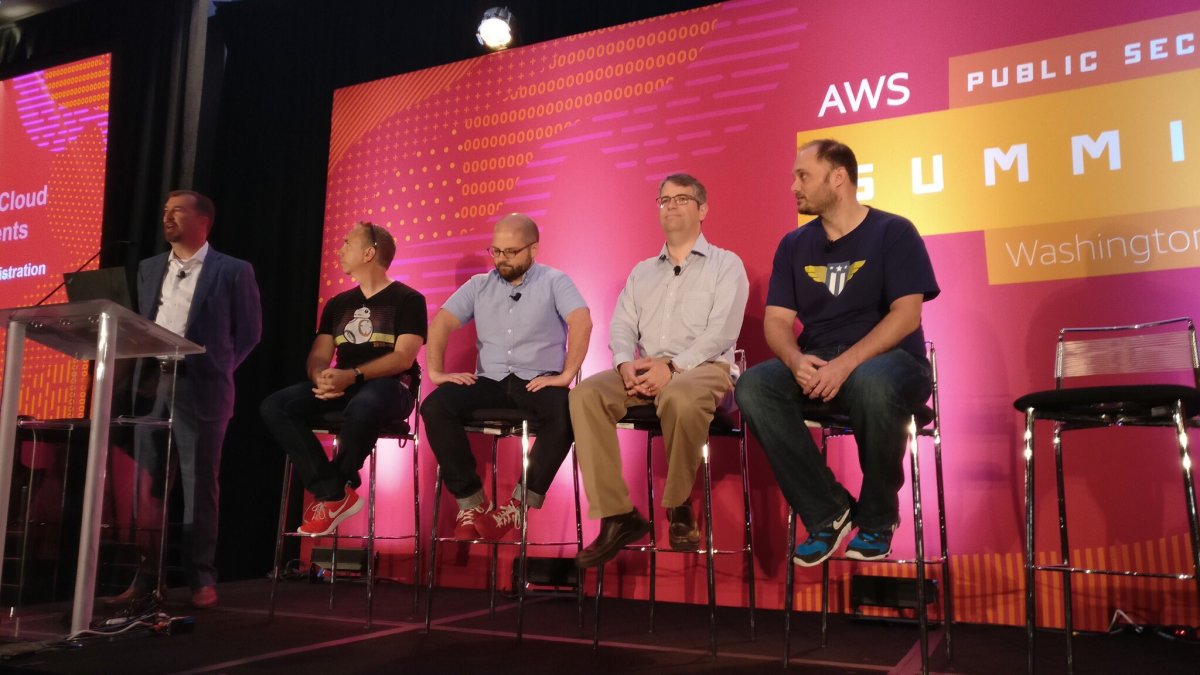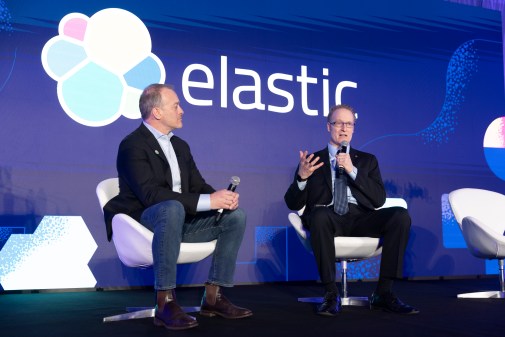Every modernization project is an opportunity to find allies, DDS officials say

There are two kinds of people in the government, according to Hunter Price, the Air Force Digital Service’s lead at Defense Digital Service: those who are resistant to change, and those who are ready for it.
Part of his job, he said Tuesday morning at the AWS Private Sector Summit, is to find kindred spirits outside of DDS — an agency arm of the U.S. Digital Service described as a “SWAT team” for bringing private sector tech savvy into the Pentagon. He was joined on the panel by DDS Director Chris Lynch, digital service lead Chris McKeever and acting USDS Administrator Matthew Cutts to discuss what modernizing the government really means.
DDS teams aren’t the only change-minded folks within the giant defense compound, Price reminded the audience. He cited a project by the Air Force Digital Service to improve the Defense Personal Property System — a portal service members and their families use to move personal property when they relocate for new assignments. Something, it bears remembering, that service members tend to do fairly often.
Price described DPS as “an antiquated tool that does not work very well” — in other words, the perfect target for some AFDS help. And his office was hardly the only one to notice the DPS’s shortcomings. A group at U.S. Transportation Command, Price said, had been working on improving the system for a while.
“When we showed up we found them really quickly and said ‘you know what, we are going to do everything we can to prop you guys up,'” he said. “‘Because you’re here for the long haul and we want to do everything we can to enable you.'”
Finding those key allies within the agency is important, the panel agreed. Not least because modernizing government — though there’s a vast amount of work to be done — often means starting small, he said.
“As opposed to moon shots, we’re really interested in all those little roof shots,” Lynch said mimicking the gesture one makes to throw a basketball. “All those little things we can do to make things a lot better.”
For McKeever, modernizing government can be an education mission. It requires talking to agency leaders to “let them know that things can be done differently,” he said. “It doesn’t have to be the best, it just doesn’t have to be the worst.” Agency leaders are often wary of trusting what they don’t quite understand, but digital service members have found that if you can prove that a solution will work, even just on a small test case, leadership will be more willing to come around.
This is the essence of why USDS exists, Cutts said — to try things that seem too risky for government and, ideally, prove that those things aren’t so perilous after all. One thing the government tends to consistently think is too risky? Failure.
“I’ve failed on a lot of things out in the private sector,” McKeever said. “But that’s kinda where I learn. And one of the things I wish the government would kind of move towards is understanding that failure is good, failure is opportunity.”
It’s a culture clash that, as if on cue, was suddenly present in the Walter E. Washington Convention Center conference room — “We’re accountable to the tax payer,” a voice in the room grumbled. “We can’t [view failure as an opportunity].”
Lynch disagrees entirely. For him, and others on the panel, it’s not a question of whether a project will fail, but of when it will fail. This, he argued, changes the cost-benefit analysis.
“The most common argument I hear is ‘we can’t iterate quickly because people’s lives are at stake,’ Lynch said. “I want to be very clear — we must iterate quickly because people’s lives are at stake. If you don’t fail while a thing is in development, you will fail when it’s in production. That is far, far worse. People will die then. That’s how serious our mission is — and we have it backwards.”






